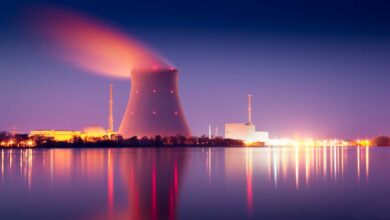TSMC’s Major Expansion How Arizona Factories are Shaping the Future of Semiconductor Production

Taiwan Semiconductor Manufacturing Company (TSMC) is making headlines with its ambitious expansion plans, particularly in Arizona. This comes amidst geopolitical tensions with China, pushing TSMC to diversify its manufacturing capabilities beyond its Taiwanese roots. As TSMC prepares its new factories for commercial production in 2025, the implications for the semiconductor market and investor confidence are significant.
The Significance of Chip Yield
One critical aspect of TSMC’s expansion is its focus on chip yield—the measure of how many functional semiconductor wafers are produced during manufacturing. Recently, TSMC announced that its Arizona facility achieved a 4% higher yield compared to its Taiwanese plants. This is a pivotal development, as many analysts were skeptical about whether TSMC could replicate its success outside Taiwan, where advanced semiconductor manufacturing has thrived for decades.
A higher yield in Arizona means that TSMC can produce more chips per wafer while maintaining production costs. This potential for increased profitability alleviates concerns that the transition to U.S.-based manufacturing could negatively impact profit margins.
Demand for AI Continues to Surge
TSMC’s Arizona facilities, along with others in Japan and Europe, are poised to become crucial in supporting the growing demand for artificial intelligence (AI) technology over the next five to ten years. TSMC is currently a leading supplier of advanced semiconductors for major tech companies like Nvidia, which is heavily invested in AI-related data center expenditures.
As AI spending escalates, TSMC’s revenue is likely to follow suit. For instance, the company’s high-performance computing (HPC) segment recently reported an 11% quarter-over-quarter increase and now constitutes 51% of total sales. This marks a notable rise from just 39% two years ago, underscoring the growing reliance on advanced semiconductors for AI applications.
Stock Performance and Future Expectations
The strong growth in sales and profits has positively impacted TSMC’s stock, which has surged by over 100% in the past year, briefly pushing its market capitalization beyond $1 trillion. Consequently, the stock’s price-to-earnings (P/E) ratio has risen to 31, reflecting a premium valuation compared to the S&P 500 average. While some investors may shy away due to this elevated P/E, TSMC has historically demonstrated robust earnings growth, bolstered by ongoing AI investments.
In the past decade, TSMC’s earnings per share (EPS) have surged by nearly 300%. This growth trajectory, alongside the company’s ability to replicate its manufacturing success in new geographical areas, positions TSMC as a formidable player in the semiconductor industry.
In conclusion, TSMC’s advancements in Arizona and its strong performance in the AI sector suggest a bright future for the company and its investors, making it a key stock to watch in the ever-evolving tech landscape.



